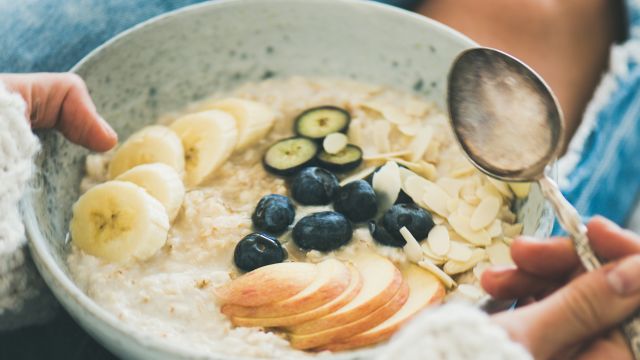While there is no special diet that is recommended for people with acute porphyria, it is recommended that people with the condition maintain a balanced diet and consume adequate amounts of carbohydrates and calories. It is also recommended that people with acute porphyria avoid low-carb diets, prolonged fasting, and crash diets, because these can trigger attacks.
Here, we answer questions about the relationship between carbohydrates and acute porphyria.
What are carbohydrates?
Carbohydrates are a macronutrient contained in food. Sugars, fiber, and starches are carbohydrates.
How do carbohydrates impact acute porphyria?
Heme is a major component of hemoglobin, a protein in red blood cells. It transports oxygen from the lungs to organs throughout the body, and transports carbon dioxide back to the lungs so it can be exhaled. Porphyrias are metabolic disorders that occur when the body is unable to properly synthesize heme—though some heme is made, a significant amount remains in an incomplete state.
When the body cannot fully synthesize heme, porphyrins and porphyrin precursors—chemicals that are made during heme synthesis—accumulate in the body and disrupt normal functioning.
When the body metabolizes carbohydrates, carbohydrates are broken down into glucose (sugar). Glucose suppresses an enzyme used in heme production. For people with acute porphyria, this helps reduce the amount of heme precursors in the blood. Glucose infusions or ingesting sugars are sometimes used to treat attacks.
How many carbohydrates should you consume?
Carbohydrates should be a part of an overall healthy eating plan that meets all of a person’s nutritional needs. For people with acute porphyria, the American Porphyria Foundation recommends that carbohydrates make up 55 to 60 percent of a person’s diet—though they emphasize that this is a guideline and that nutritional needs can vary from person to person. For a person on a 2,000 calorie-a-day diet, this equals 275 to 325 grams of carbohydrates each day.
Are carbohydrates unhealthy?
With the popularity of low-carb diets like the ketosis diet and the Atkins diet, carbohydrates have gotten an unfair reputation as being unhealthy and contributing to weight gain. But carbohydrates are not unhealthy—they are an effective and important energy source for the human body.
Many healthy foods contain carbohydrates. Many unhealthy foods also contain carbohydrates. Choose foods that have good nutritional value, such as fruit, vegetables, and whole grains. Avoid foods that have low nutritional value, such as soda, cookies, candy, and other foods that contain high amounts of added sugar. While carbohydrates are important to nutrition, consuming large amounts of added sugars can lead to other health problems.
What if you want to lose weight?
Maintaining a healthy weight is essential to good health. If you need to lose weight, the best thing you can do is talk to your healthcare provider, who can advise you on how to make changes to your diet and lifestyle without aggravating porphyria symptoms. It is important that anyone with any type of porphyria to work with a healthcare provider to get an accurate diagnosis and come up with a treatment plan. Because there are only a small number of healthcare providers that specialize in porphyria, treatment is typically overseen by a primary healthcare provider under the guidance of a porphyria specialist.






